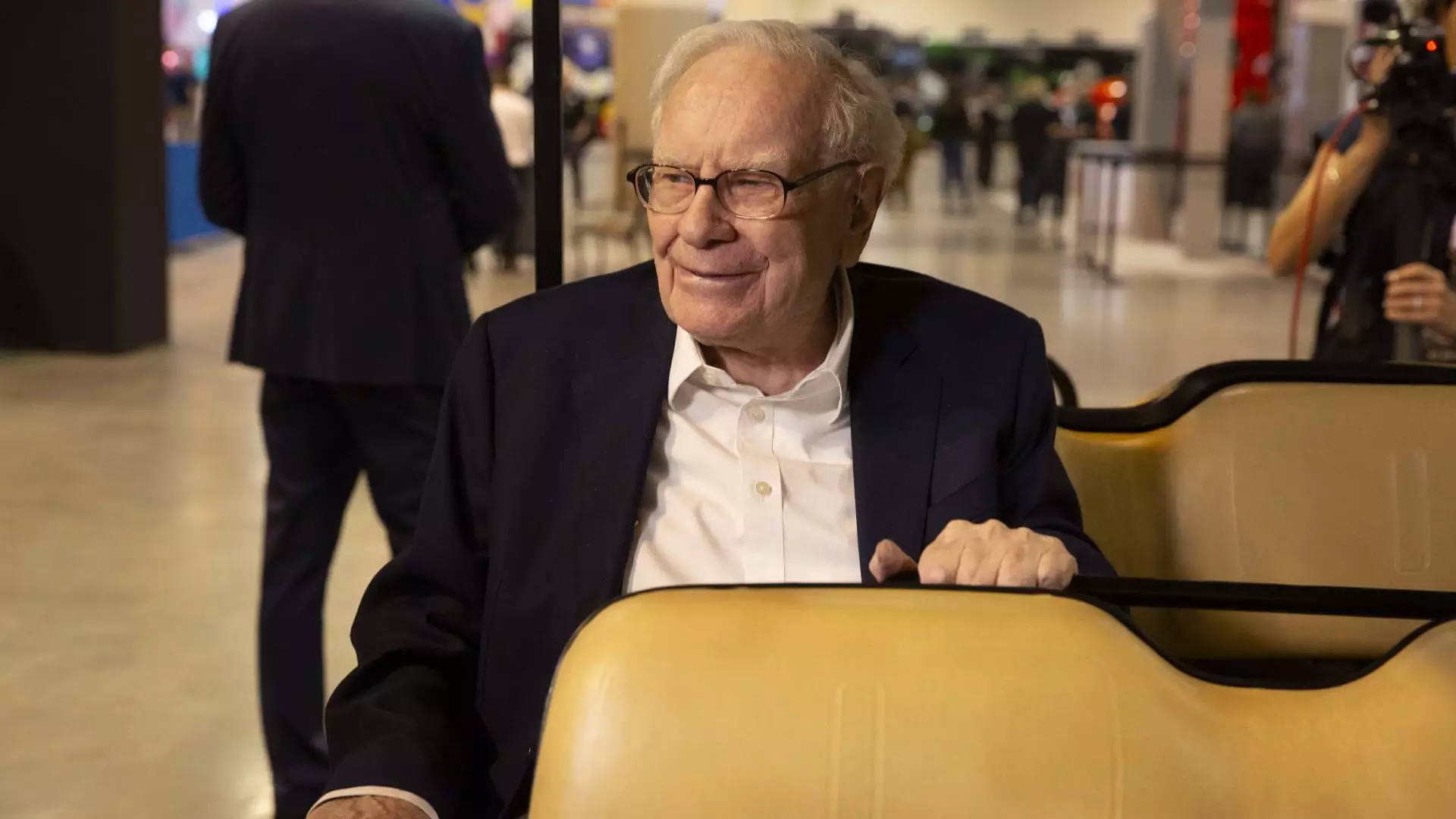Berkshire Hathaway, the investment conglomerate led by the legendary Warren Buffett, has recently caught the attention of investors after reporting impressive operating earnings in its latest financial report. While the surge in profits is certainly a positive development, a shadow of uncertainty looms over the vast cash reserves that the company maintains. Shareholders looking for more clarity on the future use of this capital may find themselves grappling with mixed emotions as they assess the implications of the company’s stagnant equity strategy.
In the fourth quarter, Berkshire Hathaway’s operating earnings soared by an impressive 71% to reach $14.5 billion. This increase is primarily attributed to a significant boost in profits from the company’s insurance businesses, which reported a staggering 302% rise in earnings year-over-year, totaling $3.4 billion. Such robust performance reflects the strength of Berkshire’s core operations and suggests that the company is well-positioned to traverse the complexities of the insurance market.
However, amidst this positivity is a conspicuous decline in investment gains, which fell sharply from $29.1 billion in the previous year’s quarter to just $5.2 billion. This alarming drop raises questions regarding Berkshire’s investment strategy and its ability to adapt to changing market conditions. The stark difference between operating earnings and investment performance implies potential concerns over Berkshire’s equity portfolio management, especially during a time of robust market activity.
One of the most discussed aspects of Berkshire Hathaway’s recent report is its ever-expanding cash reserves. The company now holds a record $334.2 billion in cash, up from $325.2 billion in the prior quarter. While such a substantial cash stockpile might normally provide a safety net during economic turbulence, it can also evoke unease among shareholders who are eager for reinvestment opportunities. Berkshire has now engaged in a nine-quarter streak of selling more equities than it purchases, totaling over $134 billion in net sales in 2024.
Buffett’s cautious approach has been attributed to elevated market valuations. In his annual letter to shareholders, he mentioned that the vast cash reserves do not signify a diminishing interest in investing but reflect the current lack of compelling opportunities. This conservative positioning is, however, met with impatience from some investors who long for more proactive capital deployment strategies.
Berkshire’s management structure raises additional questions about future strategies, particularly concerning Buffett’s succession plan. The recent endorsement of Greg Abek, Buffett’s appointed successor, indicates a level of confidence in the continuity of investment acumen. Comparisons between Abek and the late Charlie Munger suggest that the company aims to maintain its investment philosophy and operational integrity. However, with the ongoing lack of buybacks — zero shares repurchased in both the fourth quarter and the current quarter — shareholders may be left wondering about the long-term vision.
Despite the skepticism surrounding cash management and investment strategies, some analysts express confidence in Buffett’s restrained approach. Bill Stone, the chief investment officer at Glenview Trust Company, underscores the importance of preservation and proactive positioning for future opportunities. The sentiment is that by fortifying its financial position now, Berkshire can exploit market downturns when they arise, potentially leading to significant gains when the economic landscape shifts.
2024 marked a significant milestone for Berkshire Hathaway, with the stock experiencing a notable 25.5% increase, outperforming the S&P 500 in what was the best year for the company since 2021. This strong performance continued into 2025, with shares rising more than 5%. Nonetheless, the contrasting narratives of high operating profits and a growing cash hoard serve as a reminder that market dynamics can be complex.
While Berkshire Hathaway’s robust operating profits illustrate the strength of its core businesses, the stagnation in equity investment and the ballooning cash reserves create a paradox that challenges traditional expectations of an investment powerhouse. Shareholders remain divided between patience for Buffett’s prudent strategy and a yearning for a more aggressive investment posture. As Berkshire navigates these waters, its future performance will hinge upon its ability to balance caution with opportunity in an ever-evolving market landscape.

